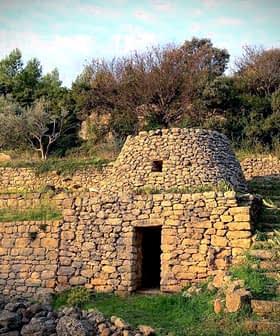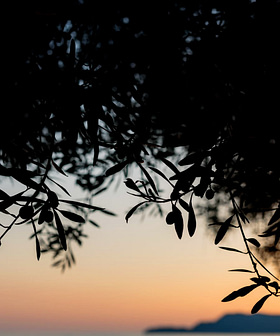Signs Suggest a Weak Harvest in Turkey
Official estimates will not be published until September, but producers in Turkey said cold and rainy weather combined with the earthquake has led to scarce fruit.
 (Photo: Zayto)
(Photo: Zayto) After last year’s record-high yield of 421,000 tons, olive growers and oil producers in Turkey expect a lower harvest in the 2023/24 crop year.
Producers across the country’s most fruitful olive oil-producing regions said cold and rainy weather in the spring had damaged olive trees as they were blossoming, leaving many barren.
Low temperatures in November and rainy days at the beginning of December may increase the percentage of oil in olive fruits. That would be the ideal condition.
Furthermore, the devastating earthquakes that shook eastern Turkey in February damaged olive trees and mills in the region.
After enjoying a bumper harvest in the 2022/23 crop year, Yusuf Ozpinar, the managing partner of Zetmar Food and International Trading Company, said he expected to produce 60 percent less olive oil in 2023/24 from his groves in southwestern Turkey.
See Also:Harvest Updates“There was a significant change in the timing of the spring season,” he told Olive Oil Times. “We had a longer winter this year. During the blossoming period, the air temperature was lower than usual, and we had a lot of rainy days, which affected the fruit setting negatively. We didn’t see it yet, but too much rain in the spring may cause fungal diseases too.”
From her vantage point in Mut, a district located on Turkey’s southern coast, Esra Deniz, owner of Ezra Olive Oil, confirmed that hail has devastated her harvest as well.
“I lost half my olives because of hail,” she told Olive Oil Times. Deniz added that erratic weather, including torrential rainfall in June after long months of drought, and rising production costs were the main challenges she expects to face ahead of the harvest.
Taking a wider view of the situation, Mustafa Tan, president of the National Olive and Olive Oil Council, said that production would likely decrease but that it remained too early to predict how much olive oil will be produced in 2023/24. The council will publish its official harvest estimate in September.
In its own preliminary estimate in May, the United States Department of Agriculture predicted that production would decrease to 280,000 tons in the 2023/24 crop year. However, the organization added that their estimates would continue to change as the season unfolded.
In its estimate, the USDA attributed the harvest decrease to many producers in the country entering a ‘off-year’ in the natural alternate bearing cycle of the olive tree.
On and off years
In the context of olive oil production, the term “off-year” refers to a year in which olive trees produce a lower yield of olives. Olive trees have a natural cycle of alternating high and low production years, known as “on-years” and “off-years,” respectively. During an on-year, the olive trees bear a greater quantity of fruit, resulting in increased olive oil production. This is influenced by various factors, including weather conditions, such as rainfall and temperature, as well as the tree’s age and overall health. Conversely, an off-year, also known as a “light year” or “low production year,” is characterized by a reduced yield of olives. This can occur due to factors like stress from the previous on year, unfavorable weather conditions or natural fluctuations in the tree’s productivity. Olive oil producers often monitor these cycles to anticipate and plan for variations in production. On-years are generally preferred as they provide higher quantities of olives for harvesting and processing, leading to increased olive oil output.
Tuba Yilmaz, the founder of Gaia Oliva, confirmed that she expects her harvest to decline this year due to many of her groves entering an ‘off-year.’
“Turkey is not a country where olive production is consistent in every given year,” Yilmaz told Olive Oil Times. “It is a geography where olive trees would yield plenty in one year and less in the following.”
“Since the previous year was the year of abundance, we expect to have a decrease in olive production compared to last year,” she added.
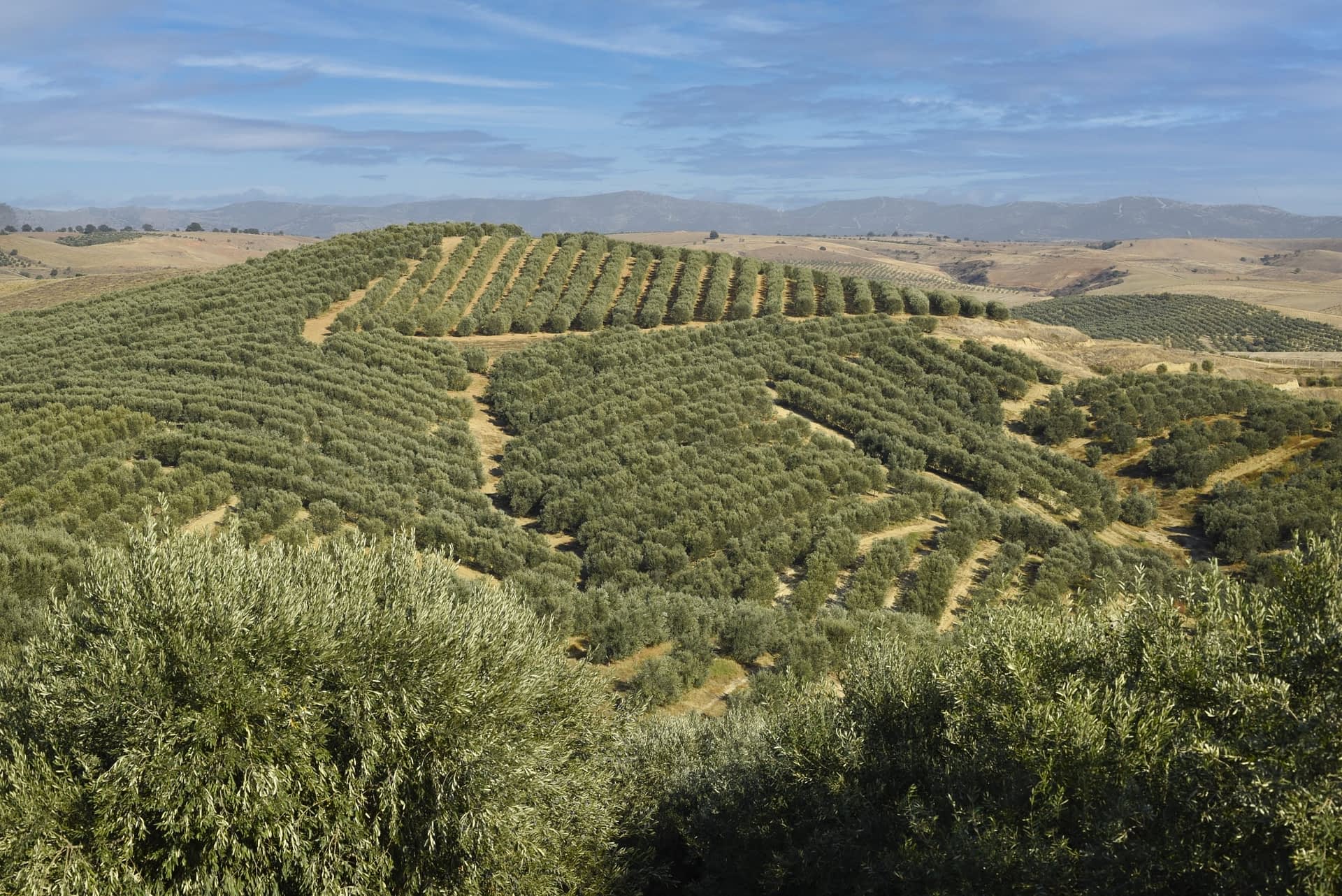
Tuba Yilmaz expects her production to decrease in 2023/24 due to her grvoes entering an ‘off-year.’
Yilmaz said data that she has seen indicates olive oil production may fall by as much as one-third, attributing this to rain and hail that affected groves across western and southern Turkey along with many groves entering an ‘off-year.’
Bahar Alan, the owner of NovaVera, told Olive Oil Times that data she has seen from the Turkish Statistical Insitute’s crop production forecast report “indicate a worrisome 25 percent decrease compared to the previous year.”
“This decline in yield is a cause for concern and emphasizes the urgency of addressing climate change and its implications on agricultural productivity,” Alan said.
“Farmers in Turkey’s olive groves have encountered challenges due to the unusually high temperatures and heavy rainfall during the flowering time,” she added. “Especially our groves in the Manisa region [in western Turkey] were affected by heavy rains and hails. Both conditions have affected the pollination process, leading to lower fruit set and reduced olive yields.”
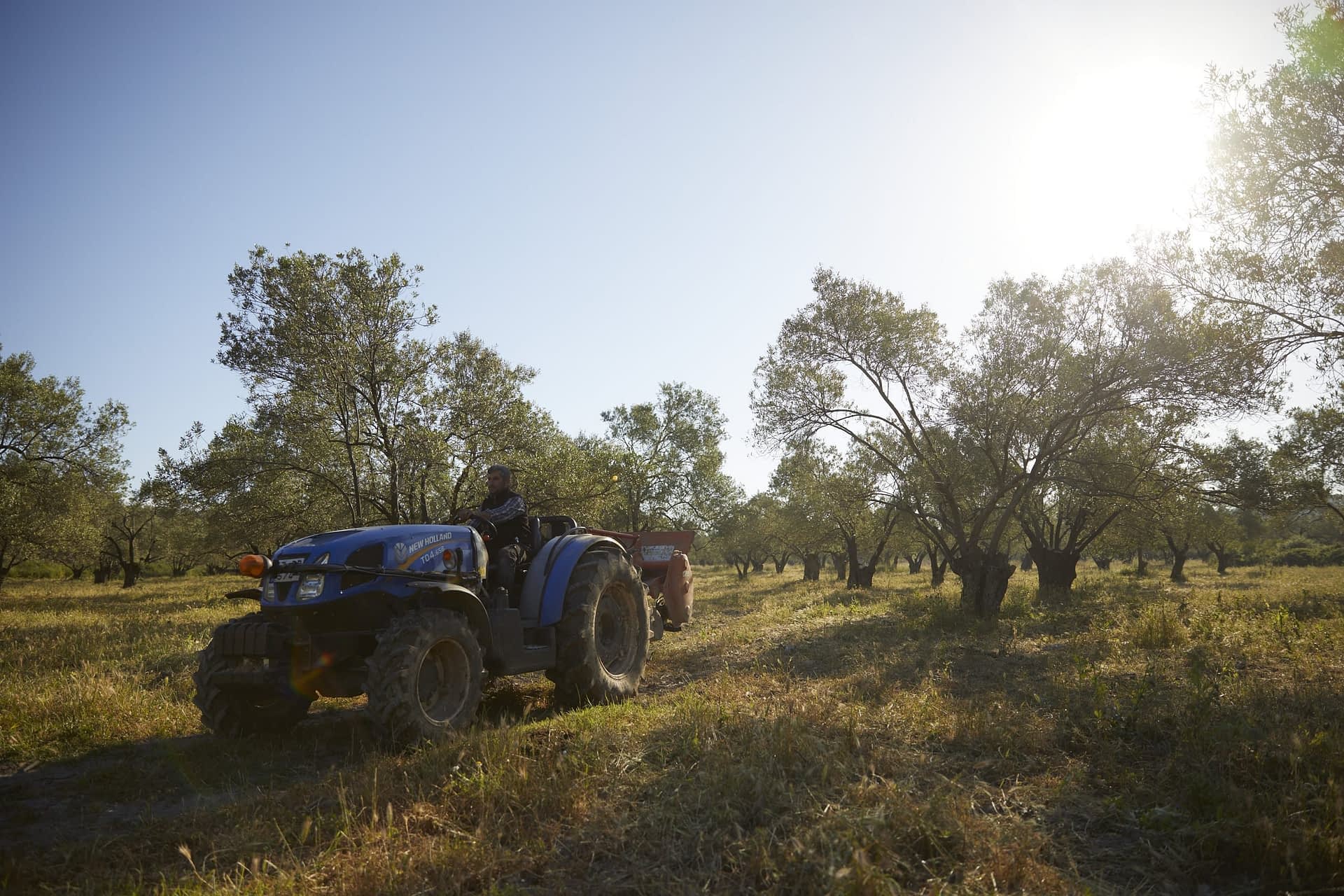
Heavy rain and hail are expected to contribute to declining olive production in NovaVera’s olive groves in western Turkey.
Zeynep Belger, the founder of Zayto, told Olive Oil Times that late-spring rain also had damaged the olive trees as they were flowering. She now expects to produce 50 percent less olive oil than she previously anticipated.
“It is a farmer’s life; every year comes with different circumstances, and this year is no different,” she told Olive Oil Times.
Unlike many others, Belger said the drought had severely limited her production in the previous two crop years, led her to invest in a drip irrigation system, and hoped this would be a rebound season.
While cold and rainy weather has hampered olive development in western Turkey, successive 7.8 and 7.5 magnitude earthquakes shook southeastern Turkey and northern Syria on February 6th, resulting in 60,000 deaths, hundreds of thousands of displacements, and an estimated €30.6 billion in damages.
“The earthquake was, of course, one of the disasters of the century, causing damage to factories and olive groves,” Tan said. “The wounds are being healed with government measures and an understanding of corporate and social responsibility and a total struggle. Things are getting better every day.”
Looking ahead to the rest of the summer, Ozpinar said low temperatures in November accompanied by rain in December might increase oil accumulation and improve harvest forecasts.
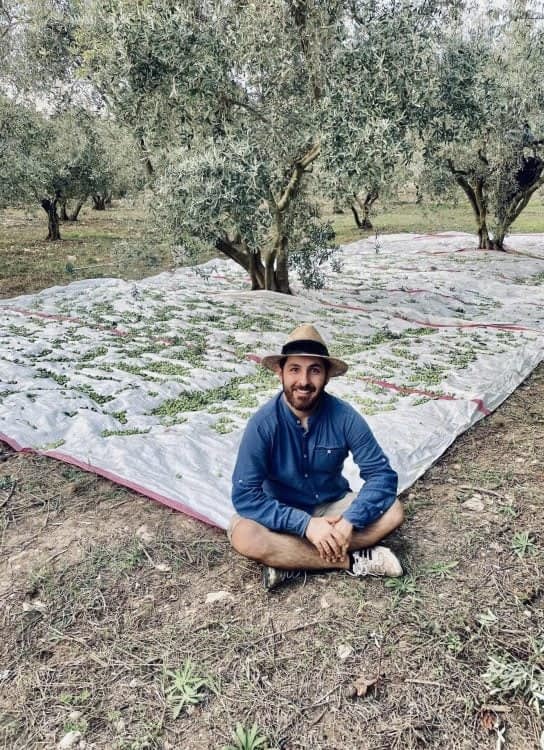
Yusuf Ozpinar harvesting in southwestern Turkey
“Due to poor fruit set on trees, olive fruits will ripen faster and will be bigger,” he said. “It is good for table olive production, but that is the last thing we want when it comes to olive oil.”
“We will have to harvest earlier with low olive oil content in order not to see fruit drops and rotten olives on the ground,” Ozpinar added. “Low temperatures in November and rainy days at the beginning of December may increase the percentage of oil in olive fruits. That would be the ideal condition.”
“Considering the challenges faced by Turkey’s olive groves, the best conditions for olive growth and oil production involve moderate temperatures and balanced rainfall,” Alan of NovaVera added. “These temperatures also affect the underground water supply, which is declining rapidly.”
“As a result, there isn’t enough water for proper irrigation, affecting the quality of watering,” she said. “It’s crucial to implement effective pest and disease control to protect the olive trees during this sensitive time and ensure their health and productivity.”
While acknowledging that it is still too early to estimate the coming harvest, Ozpinar predicts that the national olive oil yield may finish as much as 10 to 15 percent below the five-year average of 254,600 tons based on current conditions and market behavior.
“An almost 80 percent increase in olive oil buying price of wholesale buyers in the last two months corroborates the expectation of a scarce harvest,” he said.
The 2023/24 crop year may not be as fruitful as the previous one, but Tan remains optimistic about the future of Turkey’s table olive and olive oil sectors.
“On the other hand, Turkey is one of the countries least affected by the negative global climate change in terms of olive cultivation, which causes our production quantity and quality to show better development compared to other countries,” he said.
“In other words, I am hopeful for this year, and I estimate that we can be an important producer and exporter country again with the transfer of stocks from this year,” Tan added.
With another poor harvest looming in Spain, Tan believes Turkey will continue gaining market share and increasing its olive oil exports.
“For the 2023/24 crop year, as long as the proportional decline in yields continues in other countries, especially Spain, as it did last year, it would not be unrealistic to expect Turkey to increase its production and exports with its total balance sheet and to take a deeper place in new markets,” he said. “With this general assessment, we are hopeful, and we will wait and see.”
While the impacts of climate change have not been nearly as evident in Turkey as they were last year in the Western Mediterranean basin, producers across the country expressed their concerns about the impact of drought and extreme weather on olive farmers in the country.
However, like Tan, Alan is also hopeful. She said olive oil yields could be maximized this year by following certain agricultural best practices, and the continued adoption of sustainable farming techniques would mitigate future impacts of drought and extreme weather.
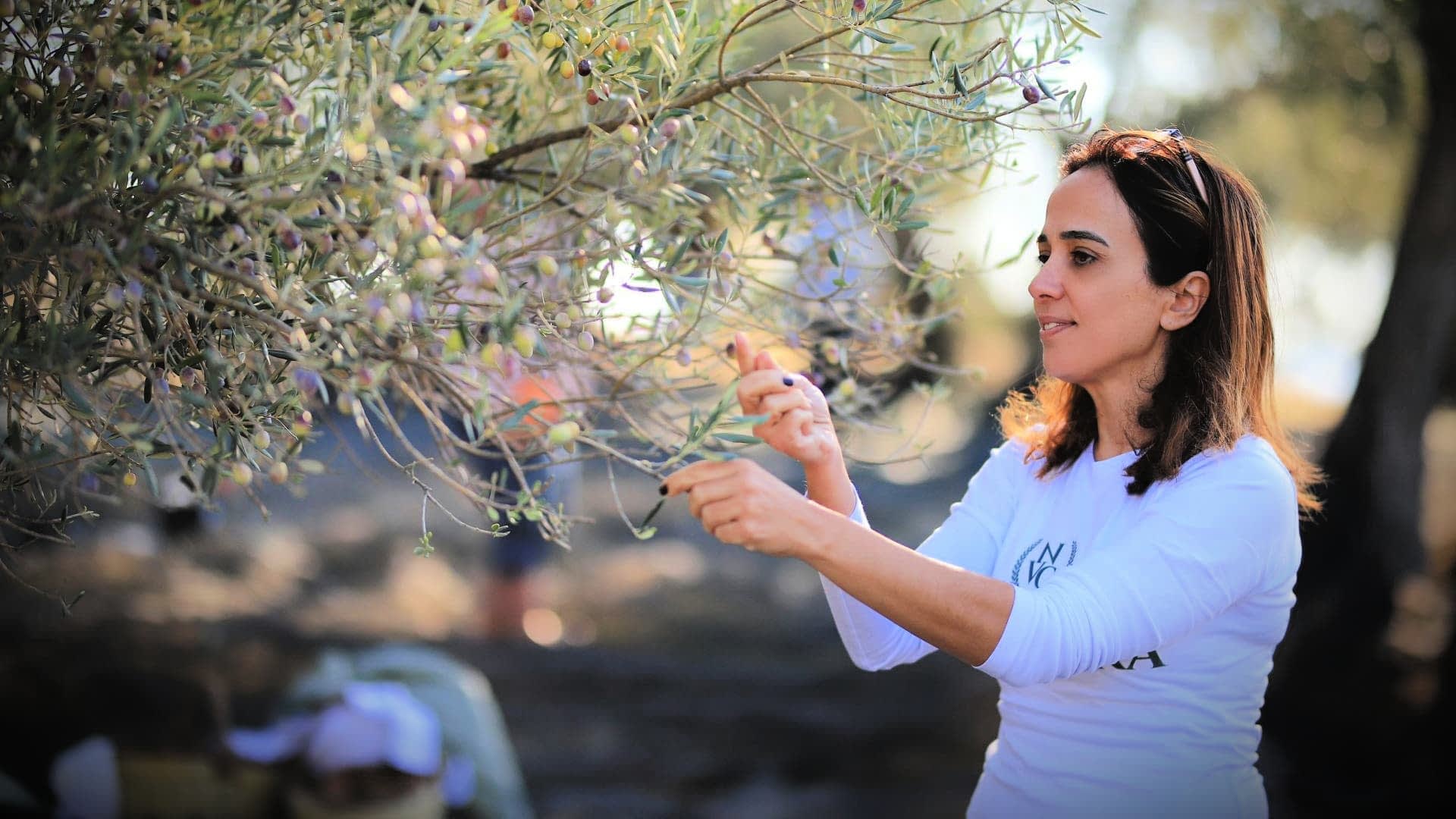
Bahar Alan inspecting trees ahead of a previous harvest.
“With proper agricultural practices and careful management, it is possible that the production could still remain above average despite the challenges faced this year,” she said. “Let us emphasize the significance of adopting sustainable agricultural methods in olive groves across Turkey.”
“By implementing practices that promote environmental conservation, responsible water usage, and ecosystem preservation, we can play a crucial role in mitigating the impact of climate change,” Alan added. “Together, as farmers and stewards of the land, our collective efforts can lead to a more sustainable and resilient olive industry for generations to come.”
Belger believes that drought will continue to be a significant challenge for Western Anatolian producers, with rain falling at all the wrong moments for olive development.
“Looking at the long-term implications of the drought, my thought is that the small farmers who cannot invest in a watering system will suffer the most,” she said. “Extensive farmers who produce on an industrial scale, with large investments in infrastructure, will prevail.”
“The landscape for high-quality olive oil producers around the world might be impacted, and passionate consumers should be ready to pay the true value of an artisanal product,” Belger concluded.







